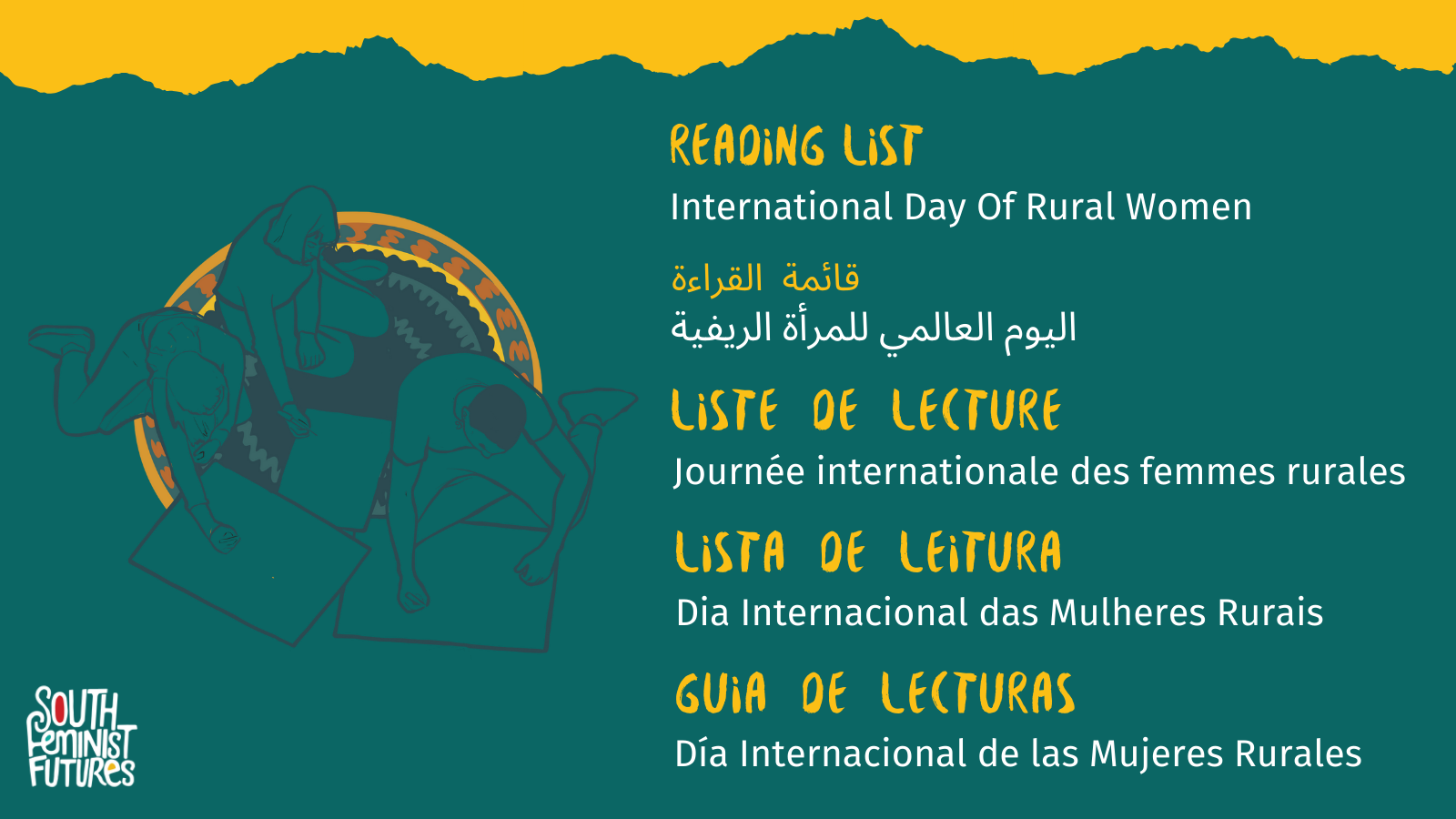The 15th of October, International #RuralWomen’s Day, is a day to recognise, celebrate and make visible the lives and political actions of rural, peasant, and indigenous women. They are the ones who are on the frontline with their body-territories – not only reproducing but also defending life and the commons against extractivist encroachment and colonisation of our territories through agroecology, seed saving, protecting and preserving the ancestral knowledge of the peoples of the Global South.
Despite representing more than a quarter of the world’s population, rural women: have little access to land – only 2% of land is owned by them (Korol.C, 20126); are under-represented in local and national governance mechanisms and institutions (United Nations, 2018); often have less voice in households and society at large (UN, 2018); and are most affected by poverty, exclusion and the climate crisis(UN WOMEN, 2018).
In the face of this unequal and unjust context, today is a day to make visible, celebrate and honour the struggles and actions for the reproduction and care of life that rural, peasant, Indigenous and agricultural women carry out to sustain life and build a feminist future. “Recovering the experiences and knowledge of women in agriculture is a way to contribute to effectively overcoming the food, energy, climate, social and political crises in which we are immersed.” (Korol. C, p.176)
Here is a list of resources (readings, videos and podcasts) on the reality of rural women in the Global South, their actions of struggle and resistance, and their proposals and alternatives for a sustainable way of life.
All resources are authored by Global South feminists and are organised by language – Arabic, English, French, Portuguese, and Spanish-. If you would like to access a more extensive list of resources on the topic or other feminist productions you can visit the South Feminist Knowledge Hub here. We welcome your contributions! If you know of other resources that should be included in this reading list, please email us at knowledgehub@southfeministfutures.org.
Reading List
English
Gender in Agrarian Transitions, Dzodzi Tsikata, Archana Prasad, Paris Yeros
What is Climate Coloniality?, Farhana Sultana
Peasants’ Dignified: Lives and Livelihoods, La Via Campesina
Women, land and livelihoods in South Africa’s land reform programme, Liepollo Lebohang Pheko
Social Reproduction and the Agrarian Question of Women’s Labour in India, Lyn Ossome
Declaration of Nyéléni, Earth International, Via Campesina, the World March of Women, ROPPA and WFF
This Land: Intergenerational Conversations about Women, Agriculture and Climate Change in Zimbabwe, Chido Nyaruwata speaks with Martha Gorimani
Women Build Power: Celebrating 10 years of Pan African Ecofeminist Organising, Womin
French
Recherche-Action, Agroécologie & Souveraineté Alimentaire au Sénégal avec Mariam Sow
Spanish
Micro-documentaries Guardians of Territory, Plurales.
We are land, seed, rebellion: women, land and territory in Latin America, Claudia Korol
Rural Women and Land Rights: Country Reports – Latin America
Women feed the world, We Effect and LatFem
Portuguese
The journey of peasant and popular feminism in La Via Campesina
What is Ecofeminism?, Andrea Santos Baca
Arabic
Peasant women workers, lost rights between exploitation and marginalization, Mona Izzat
What’s left: eco-feminist perceptions, Deema Kaedbey and Zainab Dirani
References
United Nations. (2018). Challenges and opportunities in achieving gender equality and the empowerment of rural women and girls. https://www.unwomen.org/sites/default/files/Headquarters/Attachments/Sections/CSW/62/CSW-Conclusions-62-EN.PDF
UN Women. (2018). International Day of Rural Women 2018. https://www.unwomen.org/en/news/stories/2018/10/announcer-international-day-for-rural-women-2018
